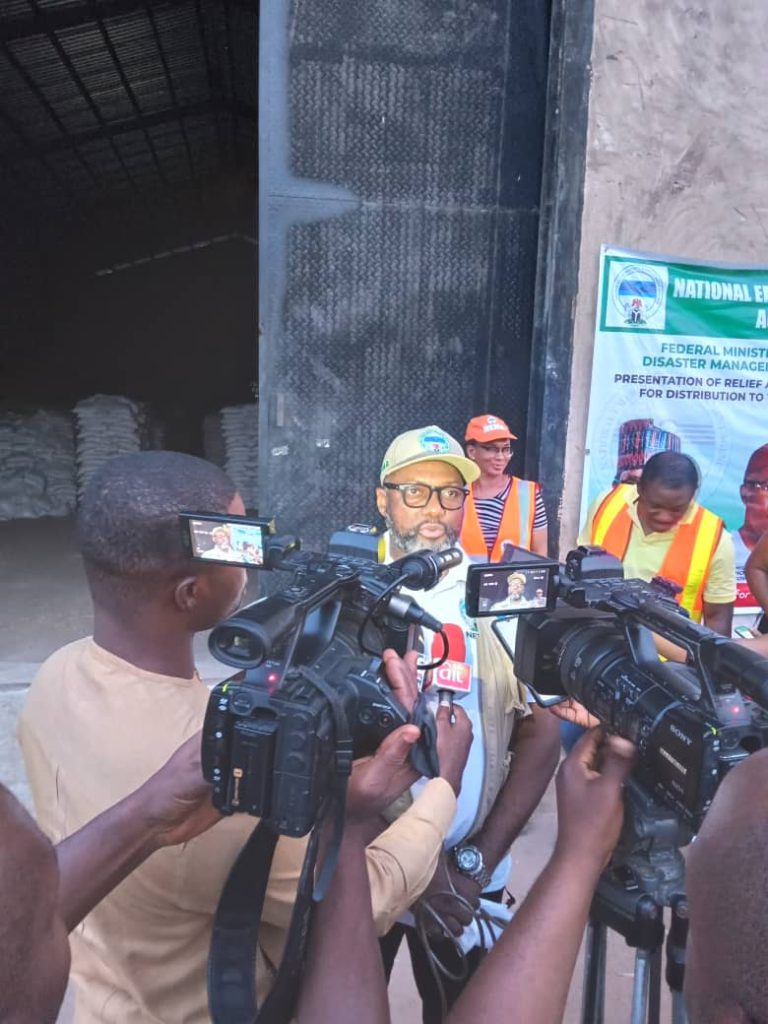
The National Emergency Management Agency (NEMA) on Monday 21st November, 2022 handed over relief materials for flood affected persons and 12,000 metric tones of assorted grains approved by the President to vulnerable Nigerians in Imo State. The Director General, Mustapha Habib Ahmed presented the items to the State Government in Owerri.
Represented by the Ag. Head of Operation, NEMA Owerri Operations Nnaji Ifeanyi, commiserate with the people and government of Imo State over the unfortunate flood disaster that ravaged the State.
Enumerating the various interventions of NEMA, he assured that Federal Government will continue to compliment the efforts of State Governments in bringing succor to flood affected persons in Imo and other States.
The DG therefore, encouraged the State to build capacity by equipping it State Emergency Management Agency and establishing Local Emergency Management Committee in the LGA’s to enhance disaster control.
In his response, the Executive Governor of Imo State, Distinguished Senator Hope Uzodimma, ably represented by the Deputy Governor, Prof. Placid Njoku appreciated the lofty ideas of President Muhammadu Buhari through NEMA for providing to flood affected persons and vulnerable Nigerians in Imo State. He assured that the Imo State Government in collaboration with relevant stakeholders will effectively distributes the relief materials directly to the beneficiaries.













